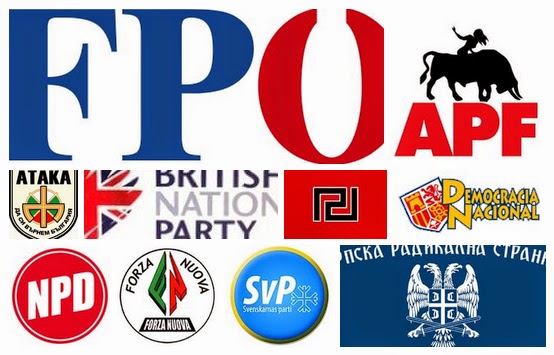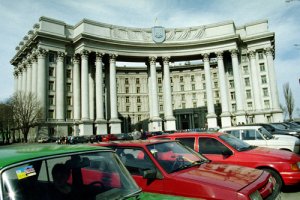Europeans, wake up!
Europeans seem to be experiencing a certain “Ukraine fatigue” again. This syndrome emerged in the mid-2000s, when the reform process in Ukraine became stuck after the Orange Revolution of autumn 2004. Even then, political maturity seemed to reside with citizens more than with the government. The authorities, in fact, had largely missed the opportunity to transform the political, economic, and social system of the country, primarily because of the influence of the oligarchs. Europeans praised the popular initiatives but regarded the Kyiv elites with a certain weariness.
A new opportunity emerged for Ukraine in the autumn of 2014 with the Euromaidan movement, but these protests have given way to a conflict in the Donbas, where Russia’s involvement is significant. If necessary, this demonstrates that Ukraine plays a key role in the stability of Europe, and that Europe has responsibilities in its neighborhood, notably in the greater stability at our borders. At this point, it is also possible to assess those expectations that still depend today on the capacity for change by Ukrainian society and institutions — both internally and externally — by citizens, as well as by creditors and the international organizations. Hopes for rapid change will be disappointed to some extent, but the key is to show change over time. In 2016, as in 2004, Europeans have experienced a certain weariness with the sluggishness of Ukrainian reforms.
However, Europeans must not tire too quickly of the Ukrainian question! To move a country from a controlled economy and from a post-Soviet system to a liberal democracy and a market economy is a very long-term process, especially when accompanied by a military conflict.
Ukrainian instability
For its part, the European Union (EU) is in much worse shape than a decade ago. This is no longer the time for a new expansion East or to the Balkans. Instead, the likelihood of “Brexit” (British withdrawal from the European Union — Ed.) is rattling the chancelleries in 2016, in the aftermath of the Greek drama, which has left its marks. Tensions between the EU and Russia have reached new heights since the dissolution of the USSR, while authoritarian temptations are resurfacing in Hungary and Poland. Ukrainian fatigue has another, more serious, source. Europe is tired. But this is not the time to fall asleep! Europe must remain sharp, alert and attentive, especially to the world that surrounds it.
Nonetheless, there is agreement on the reasons. The attacks of November 13, in Paris, together with the refugee crisis, have definitely moved interest in Ukraine into the background. However, it would be a grave error to abandon Ukraine and to turn a blind eye to its difficulties out of convenience or cowardice. Solutions to some of the instability traversing the European continent can be found in Ukraine, and it is more important than ever to commit to the effort.
Militarily, the stabilization of the Ukrainian front will help lower the current level of tensions on the continent. The Minsk 2 agreements may have decreased hostilities, but they have never actually stopped them completely. Since February 2015, much progress has been made, and the different parties to the conflict have agreed that the resolution of the crisis must be political rather than military.
In 2016, it is important to make sure these agreements are observed before any remaining sanctions against Russia are lifted. The unconditional lifting of sanctions would actually discredit Europe’s external policies, which are already much criticized. Given the level of tension in Ukraine and with Russia, as well as the inadequacies of the (Minsk) agreement, it is obvious that the Donbas will remain a hot spot in Europe that cannot be ignored.
It is essential to progressively overcome Ukrainian instability in order to preserve the stability of Europe itself.
Without the promise of European membership
Economically, Ukraine has drawn closer to European markets following the Deep and Comprehensive Free Trade Agreement that came into force on January 1, 2016. The real challenge is to transform the Ukrainian economy and to make it competitive in line with European standards. The fight against corruption remains a huge challenge because of the concentration of wealth with a few individuals who have been able to mold the system to their benefit.
Until now, the promise of European integration has served as a stimulus to reforms. It will be necessary to find a new way to encourage change without the leverage of possible European integration, which will not be available at least for the next several years. The transformation of the energy sector and gas transport are projects that still need to be addressed on a continental scale. It is in Ukraine, especially, that a rapprochement between the EU and the Eurasian Union could have positive results.
When it comes to governance, Ukrainians will need to tackle large projects, such as decentralization. The EU member countries have all the know-how to be able to support Kyiv in the implementation of these profound changes.
Finally, taking into account what was discussed earlier, the normalization of relations between the EU and Russia on a political level unavoidably requires the improvement of the situation in Ukraine rather than its embarrassed avoidance. The alternative is not a choice between the abandonment of Ukraine to please Moscow or war with Russia to appeal to Kyiv, but rather the linking of diverging interests and the resolution of conflicts. Without Kyiv there is no foreseeable improvement in the Russo-European relations, no framework allowing the neighboring states to develop under better conditions.
The “right to be well governed” knows no frontiers: it is an essential question for the European continent, especially for the French, who are on the front line with the Minsk Agreements and who need to invest in this relationship. Ukraine’s future will reveal Europe’s capacity to build its own future in the spirit of its founding ideal — peace — and to develop broader and more balanced relations in its geographic, historic, cultural, and political neighborhood.
Europeans, wake up! What is at stake in Ukraine is also part of our common destiny and our ability to be a positive influence in every respect in a partner country without offering it the prospects of immediate integration with Europe.
*****
Cyrille Bret is lecturer at the Paris Institute of Political Studies and a member of the working group on Ukraine at the Synopia think tank.
Florent Parmentier teaches at the School of Public Affairs at the Paris Institute of Political Studies and is a member of the working group on Ukraine at the Synopia think tank.
Alexandre Malafay, president of the Synopia think tank, contributed to this article.
Synopia is a French think tank specializing in the governance of public and private institutions, in France and Europe.







